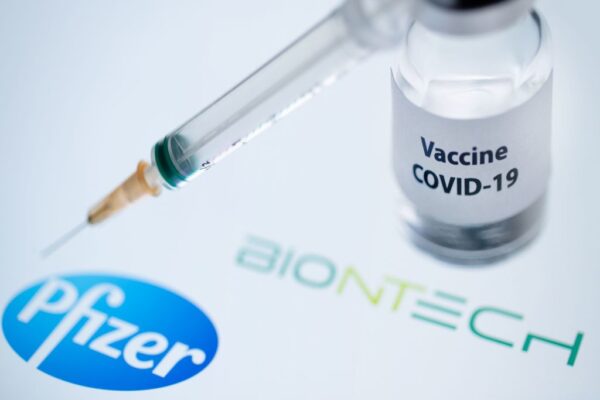
In fields from electronic design to industrial and pharmaceutical manufacturing, precision testing and measurement have long been critical features, measuring pressure as sensitive as a baby’s breath when sleeping and temperatures with accuracy in the thousandths of a degree.
Over the past year, with the outbreak of the Covid-19 pandemic, measurement has taken on a whole new significance, with a role to play in helping ensure the safety of people across the world and containing the spread of the virus.

Health Benefit Consultants, Share Your Expert Insights in Our Survey
Jeff Gust Jeff Gust Jeff Gust is the Chief Corporate Metrologist for Fluke and Fluke-owned companies including Comark, overseeing all aspects of measurement. He is a recognized member of the international metrology community, with over 25 years of experience in the field across metrology management consulting, measurement uncertainty and proficiency testing. Jeff is also the […]
Maintaining Ultra-cold Storage
This is now more true than ever, following FDA’s Emergency Use Authorization of Pfizer and BioNTech’s COVID-19 vaccine, with attention turning to the supply chain, including how many doses will be quickly available and how they’ll be distributed.
One feature of this vaccine is that it must be transported and stored at ultra-cold temperatures of minus 70 degrees Celsius (-94 F) to ensure its potency, a significantly lower temperature than many other routine vaccines require. Temperature management will also be a consideration for Moderna’s vaccine candidate, which remains stable at minus 20 degrees Celsius (-4 F) for up to six months.
These temperature standards provide logistical challenges, as the freezers needed to achieve the requisite temperature levels are not always available. For example, in the United Kingdom, where the Pfizer vaccine is beginning to be rolled-out, attention has focused on the challenge of getting vaccinations to vulnerable care home residents, less able to travel to a hospital location for the vaccination program. Due to temperature management requirements, hospitals in England have been identified as the first hubs for vaccine distribution, in order to administer the vaccine while maintaining the necessary temperature range.
Monitoring from End-to-End
Beyond identifying suitable hubs for ultra-low temperature storage, maintaining precise temperature management in transit will also be a critical requirement for distribution. Quickly establishing supply chains with exacting, reliable temperature requirements has become known as the challenge of the ‘cold chain’.

A Deep-dive Into Specialty Pharma
A specialty drug is a class of prescription medications used to treat complex, chronic or rare medical conditions. Although this classification was originally intended to define the treatment of rare, also termed “orphan” diseases, affecting fewer than 200,000 people in the US, more recently, specialty drugs have emerged as the cornerstone of treatment for chronic and complex diseases such as cancer, autoimmune conditions, diabetes, hepatitis C, and HIV/AIDS.
Automated, traceable data monitoring systems with alarm notifications of temperature breaches will be needed to ensure urgent response times for maximum vaccine viability and success.
By creating new networks for 24/7 temperature monitoring, alerts and reporting, the challenges of deploying transportation at ultra-low temperatures can be overcome, while maintaining compliance, safety and peace of mind. This also illustrates the crucial role that precision measurement will have to play.
Measurement in a Post-Covid World
With the prospective roll-out of a vaccine, it would be all too easy to think that we’re nearing the finishing line in tackling Covid-19 and relax our guard too soon. But in practice, measurement and testing will remain a key feature throughout 2021 and beyond, whilst any vaccine candidates are deployed, due to the length of time it takes to roll-out a vaccine and the complexities involved in reaching a broad swathe of the world’s population.
This means it will be important to test, monitor and implement administrative controls, as businesses consider any plans for return to site, using the range of tools available to manage and mitigate against the risk of Covid-19 spread, from social distancing and mask wearing to temperature screening and sanitation, as well as ensuring suitable ventilation.
Considerations over the longer term include the potential for Covid-19 strain mutations and variations, which could necessitate the refreshing of vaccine formulations over time, as well as the risk of new transmissible diseases emerging, indicating a need for vigilance and preparedness.
Given these considerations, many businesses and organizations are already planning for the longer term and considering the role for health screening and healthy space management tools in a post-Covid world. As a result, this is a critical time for accuracy, durability and repeatability in measurement, to ensure decision-makers have the best tools and information available, whether in deploying the roll-out of vaccines or preparing for the world beyond, to make informed decisions for the future.
Photo: Joel Saget, Getty Images
Jeff Gust
Jeff Gust is the Chief Corporate Metrologist for Fluke and Fluke-owned companies including Comark, overseeing all aspects of measurement. He is a recognized member of the international metrology community, with over 25 years of experience in the field across metrology management consulting, measurement uncertainty and proficiency testing.
Jeff is also the founder of MeasurePT Inc., an accredited proficiency testing provider for calibration and test laboratories. He is an active member of several industry advisory committees, including the American Association for Laboratory Accreditation (A2LA), ANSI National Accreditation Board (ANAB) and Perry Johnson Laboratory Accreditation, Inc. (PJLA).
As a past president of NCSL International (NCSLI), his contributions to the industry have been recognized by the Measurement Science Conference Woodington award. He has authored numerous technical papers for National Institute of Standards and Technology (NIST) and other recognized trade organizations. Jeff holds a B.S. in Physics from Purdue University.











